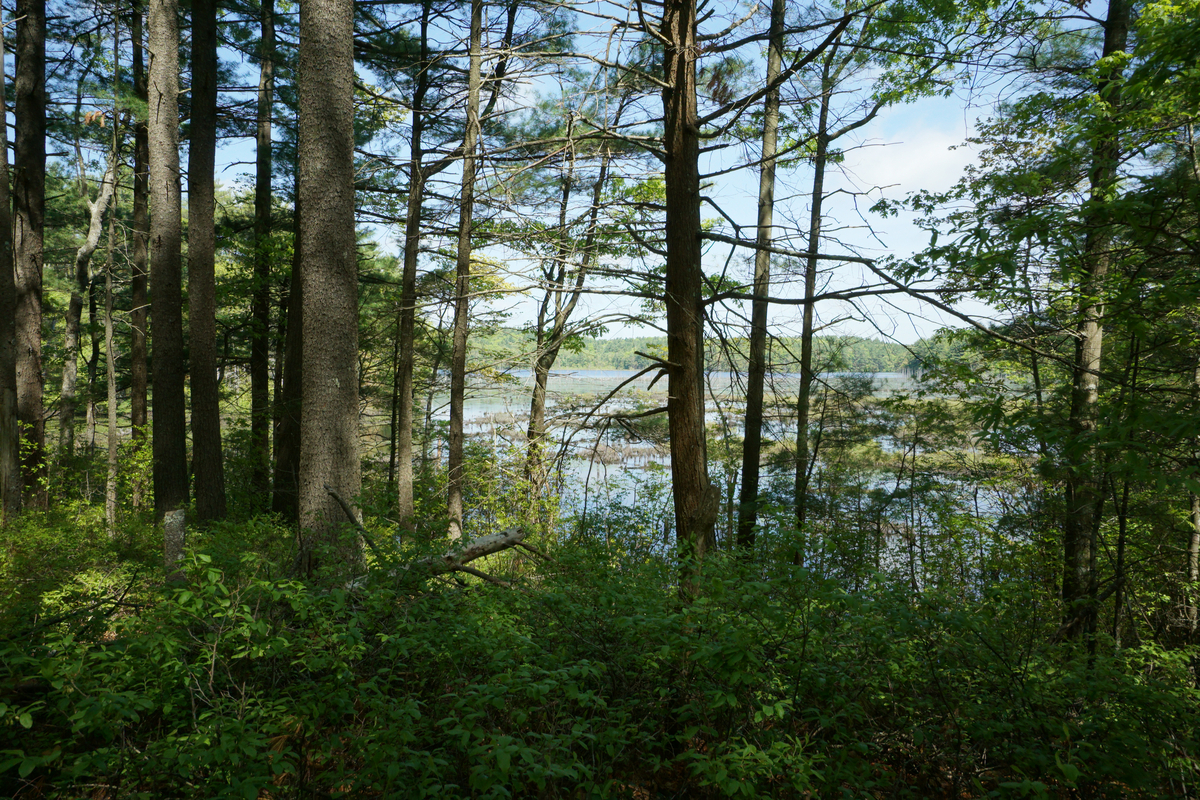Conserving & Protecting Land
How To Protect Your Land
Conserving Your Land
Decisions you make as a landowner can have long-lasting effects on the Massachusetts landscape that future generations will inherit, and on the wildlife that share this landscape with us. Not only will conserved land benefit people and wildlife, but it also offers the landowners tax advantages.
There are many ways to permanently protect your land, including a donation or sale of the ownership of the land, or of a perpetual conservation restriction (easement).
Donate or Sell
By donating or selling your land to Mass Audubon, your property will benefit wildlife and people. Conveying your land outright may be the simplest and best way to conserve it. Your gift or sale of land to Mass Audubon will help connect people with nature while freeing you of all responsibilities of ownership and management, including property taxes.
Landowners who donate or charitably discount the sale of their land for conservation may take advantage of several tax benefits, including reductions in federal income tax and reductions in estate tax, to name a few.
Conservation Restriction
Conservation restrictions (CRs), also known as conservation easements, are legally binding agreements that permanently protect certain conservation values of a property while allowing the land to remain in private ownership.
They are conveyed to a non-profit conservation organization or public conservation entity, which accepts the right and responsibility to monitor the property and defend and enforce the terms of the CR in perpetuity. CRs are placed on record at the Registry of Deeds and run with the land, meaning that they apply to all future owners of the property.
CRs are a flexible tool, able to be customized to protect specific aspects of a given property, or to address needs of the owner. They usually involve the permanent extinguishment of some, but not necessarily all, of the development potential of the land, and can be gifted or sold. Properly crafted, CRs can generate significant tax benefits in the form of income tax deductions and estate or property tax reductions.
Why Mass Audubon
Thanks to Mass Audubon's land conservation efforts, our system of wildlife sanctuaries and protected land across the state represents the largest private ownership of conserved natural land (or "land protected as wildlife habitat”) in Massachusetts. Since our founding in 1896, we have protected over 43,000 acres of land, including more than 8,000 acres protected through perpetual conservation restrictions. The land we protect has come to us thanks to the conservation ethics and generosity of the many landowners who have chosen to make donations of land, and to the donors who have generously supported our conservation purchases.
Contact Us
Are you interested in conserving your land? Please email us and we can help!



